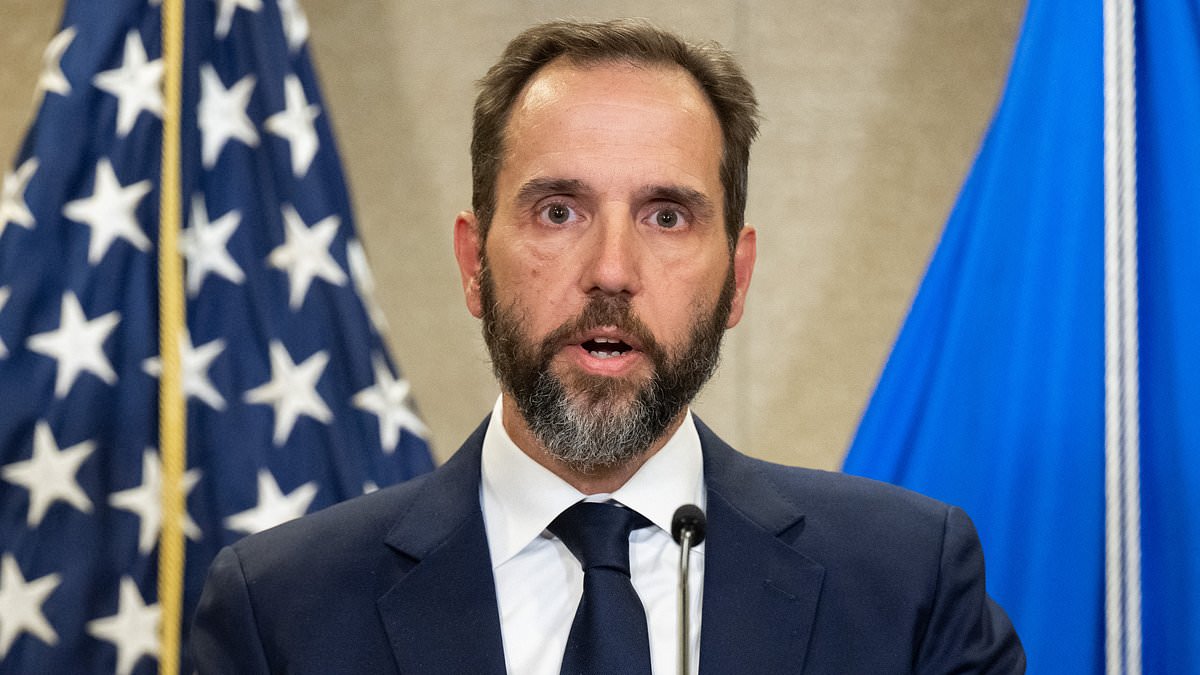Special counsel Jack Smith has moved to have the federal election subversion charges against Donald Trump dropped.
The president-elect was facing four charges in connection with efforts to overturn the 2020 election that led to the January 6 attack on the Capitol.
Smith asked U.S. District Judge Tanya S. Chutkan to dismiss the case without prejudice because of policy prohibiting prosecuting a sitting president.
The case has been seen is likely to fall away since Trump’s stunning win in the November elections.
A grand jury indicted Trump August 1 last year in the case, but it stalled for months while the Supreme Court considered ‘immunity’ arguments raised by Trump’s lawyers.
The court eventually ruled in a 6-3 decision by its conservative majority that Trump did enjoy broad immunity from prosecution for official acts as president. That prompted Smith, who Trump regularly calls ‘deranged’ and has vowed to fire, to file a superseding indictment that narrowed the charges.
Trump was facing charges of conspiracy to defraud the U.S., conspiracy to obstruct an official proceeding, obstruction and attempted obstruction of an official proceeding, and conspiracy against rights.
It comes days after a New York judge moved to dismiss Trump’s hush money case following his conviction on 34 counts of falsifying business records. An existing Justice Department policy disallows prosecution of a sitting president.
It ends a lengthy investigation that cost taxpayers $50 million and never made it to trial, in a case that prosecutors didn’t charge until halfway through President Joe Biden’s term.
The start of Biden’s term featured prosecutions of hundreds of people who enterted the Capitol on January 6, when Trump supporters stormed the building on the day Congress met to count electoral votes certified by the states.
Then in another historic decision, AG Merrick Garland announced that he had apointed Smith, a former war crimes prosecutor, to probe ‘whether any person or entity unlawfully interfered with the transfer of power following the 2020 presidential election or the certification of the Electoral College vote held on or about January 6, 2021.’
Smith also oversaw the classified documents case against Trump, who was accused of taking national security documents to Mar-a-Lago after he left the White House.
Smith has already made it known that he plans to leave before Trump takes office.
Incoming White House communications director Steven Cheung called the move a ‘major victory for the rule of law.’
‘The American People re-elected President Trump with an overwhelming mandate to Make America Great Again. Today’s decision by the DOJ ends the unconstitutional federal cases against President Trump and is a major victory for the rule of law,’ Cheung said in a statement.
‘The American People and President Trump want an immediate end to the political weaponization of our justice system and we look forward to uniting our country,’ he said.
Smith also moved to end the classified documents case against Trump, where Trump-appointed Judge Aileen Cannon has already dismissed. Prosecutors were appealing her decision that Smith’s appointment was unconstitutional.
However the DOJ continues to prosecute two Trump aides, former White House valet and aide Walt Nauta and Mar-a-Lago property manager Carlos De Oliveira.
They are charged with conspiring to help Trump obstruct the FBI and retain classified material. Both have pleaded not guilty.
Smith wrote in the January 6 filing to Judge Chutkan, ‘It has long been the position of the Department of Justice that the United States Constitution forbids the federal indictment and subsequent criminal prosecution of a sitting President. But the Department and the country have never faced the circumstance here, where a federal indictment against a private citizen has been returned by a grand jury and a criminal prosecution is already underway when the defendant is elected President.’
After consulting with DOJ’s Office of Legal Counsel, ‘after careful consideration’ DOJ decided that the OLC’s prior opinions and the Constitution’s ‘prohibition on federal indictment and prosecution of a sitting President apply to this situation and that as a result this prosecution must be dismissed before the defendant is inaugurated.’
